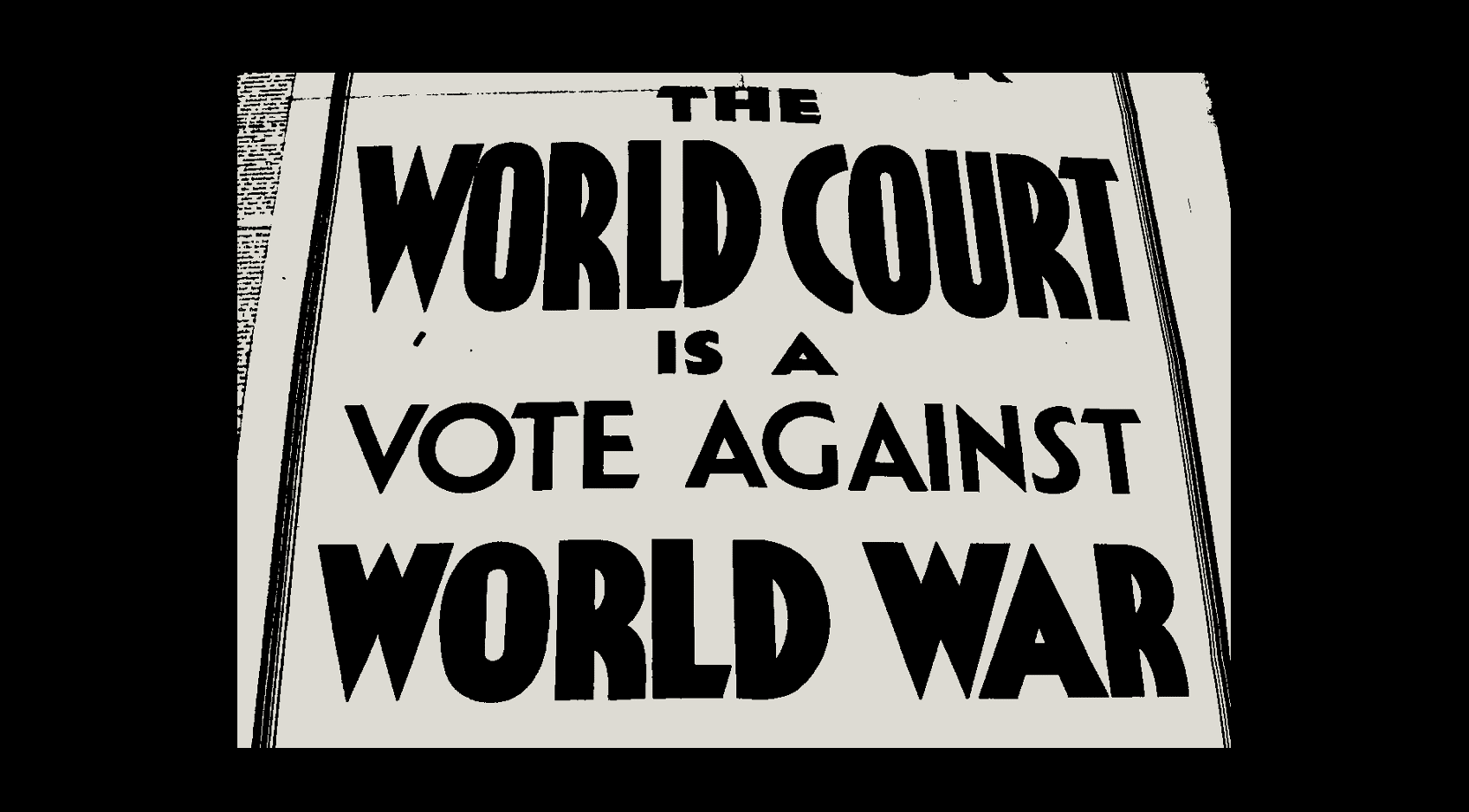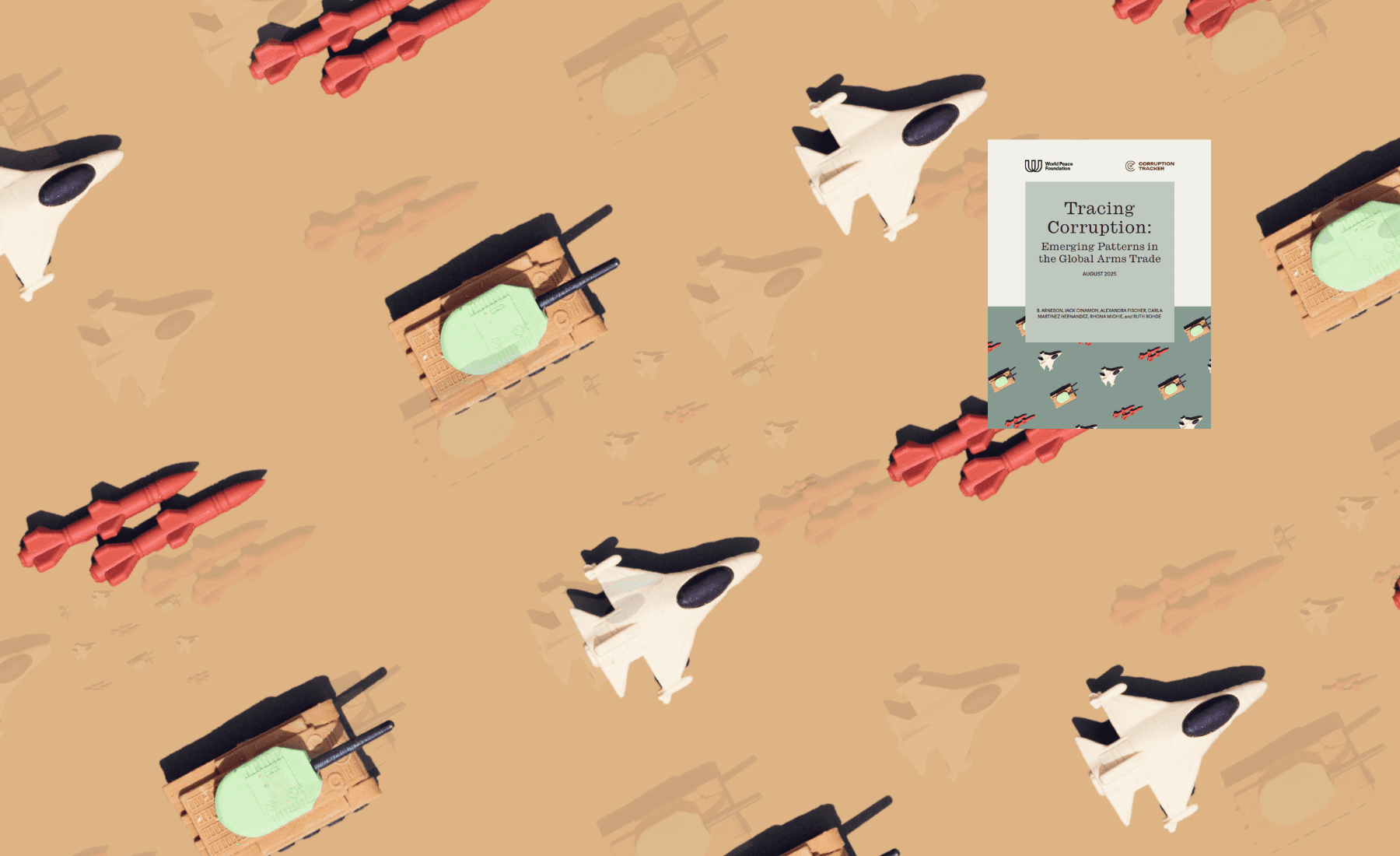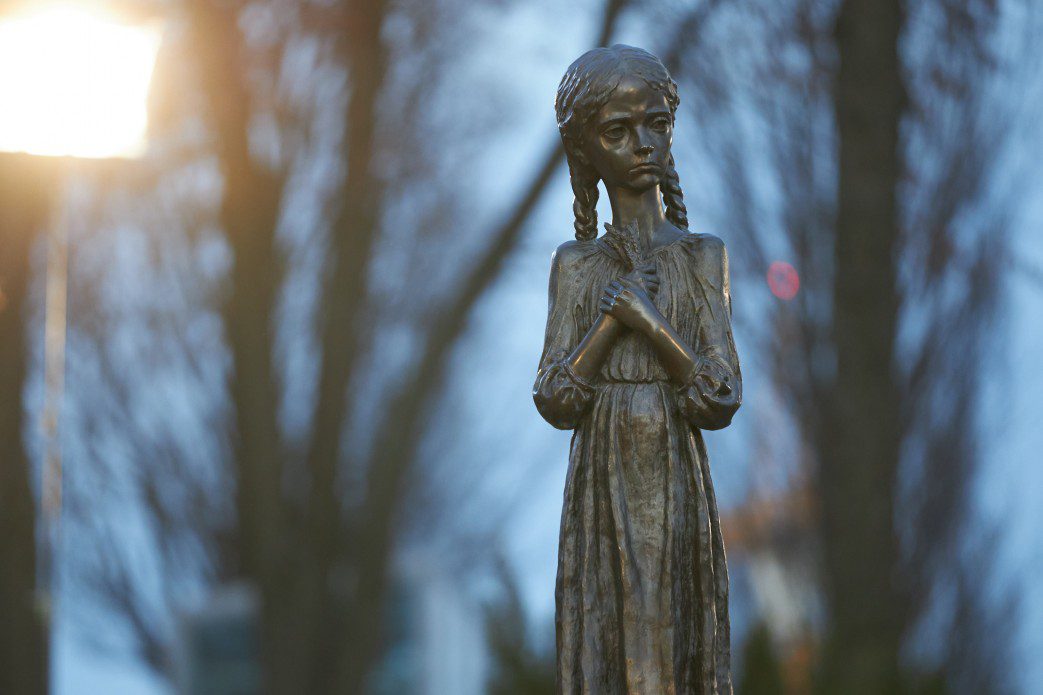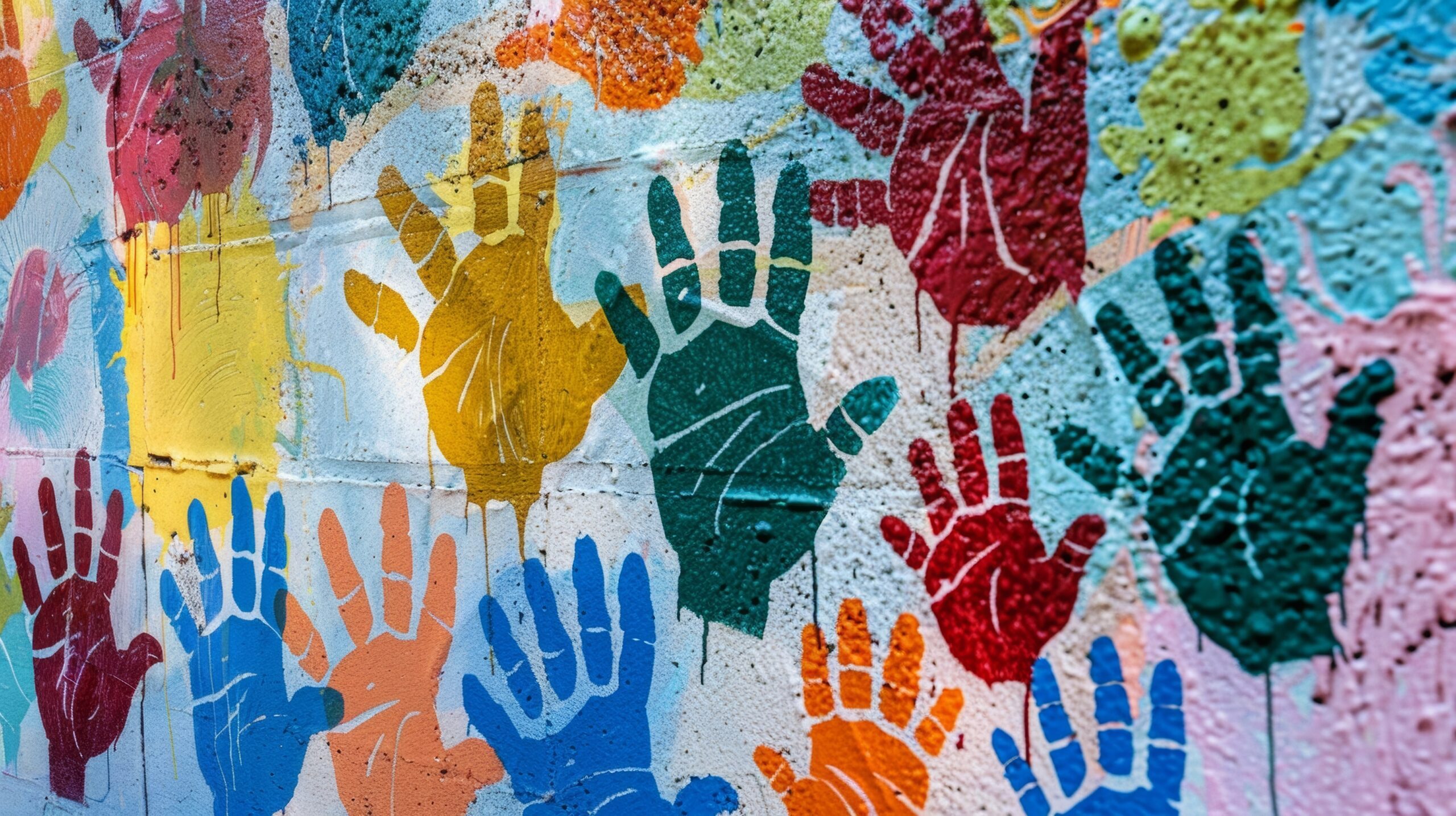For 114 years, the World Peace Foundation has championed a world court. Our position has not changed. On the eve of the hearing of the Application by South Africa against Israel on the question of genocide at the International Court of Justice in The Hague, and the request for provisional measures, the Foundation remains steadfast in this commitment.
The founder and first president of the World Peace Foundation, Edwin Ginn, was an enthusiast for the Permanent Court of Arbitration, that was established by the Hague Peace Conference of 1899, but also insisted that stronger international arbitration and enforcement mechanisms were needed. The Foundation later wrote:

Edwin Ginn was an early convert to the arbitration cause and gave it much of his time and money. Yet he became convinced that arbitration machinery was not by itself sufficient to assure the peaceful settlement of disputes… As early as 1901, Ginn was advocating an international peace force to enforce the decisions of the Hague Court.[1]
The Permanent Court of Arbitration is a not standing court as such but a machinery for convening arbitral tribunals at the request of parties to a dispute. It still exists, seated in the Peace Palace in The Hague, offering dispute resolution services to the international community. What Ginn wanted was a true permanent world court to which states would be obliged to bring their disputes for arbitration. This is also distinct from the International Criminal Court, set up a century later, which investigates situations of war crimes, crimes against humanity, genocide and aggression, and prosecutes individuals for such crimes.
The WPF was constituted in 1910. One of its early activities was bringing the annual convention of the International Congress of Chambers of Commerce to Boston in 1912. There, the delegates ‘formally endorsed the world peace community’s desire to establish an International Court of Arbitral Justice’ (i.e. a ‘world court’).[2]
Ginn’s personal position, in favor of an international peace force, was controversial and did not command a consensus.
Ginn died in January 1914. His close friend Edwin Mead who served as chief executive officer of the WPF, continued to advocate for a World Court. To the disappointment of the WPF, the League of Nations Covenant signed in Paris after World War One did not include a fully constituted world court. The Permanent Court of International Justice, established by in 1920, was not in its view sufficiently strong. Nonetheless, the Foundation advocated for the United States to join the League of Nations and support the Court. The WPF was the exclusive American distributor of the publications of the League of Nations and the PCIJ.
In 1943-44, as the United Kingdom and the US began preparing a report and draft recommendations for a new court to replace the PCIJ, the WPF was again involved. Leland Goodrich was the Director of the WPF during 1942-46. He was invited to be a member of the Secretariat for the San Francisco conference that established the United Nations, and advocated for a strong international court of justice to replace the PCIJ, which he had earlier supported and critiqued. The PCIJ was dissolved in 1946 and replaced by the International Court of Justice.
Goodrich’s friend and colleague Edvard Hambro went on to become the first registrar of the ICJ and later the two collaborated on the authoritative volume documenting the process leading to the Charter of the United Nations.
The Charter of the United Nations was signed in June 1945 and came into force four months later. International commitments to human rights followed, notably the Geneva Conventions of August 12, 1948, followed by the Convention on the Prevention and Punishment of the Crime of Genocide, which was signed on December 9, 1948, and one day later, the Universal Declaration of Human Rights.
Cases of individuals charged with the crime of genocide, among other international crimes, have been brought at the International Tribunal for the Former Yugoslavia and the International Criminal Tribunal for Rwanda, and the Prosecutor of the ICC has issued arrest warrants for genocide. At the ICJ, three cases have been brought by states against those allegedly perpetrating genocide against their people, namely: Bosnia & Herzegovina vs Serbia and Montenegro, Croatia vs Serbia, and Ukraine vs Russia.
Cases at the ICJ can drag on for years, making them inconsequential for the affected people. In the Ukraine vs Russia case, the ICJ ordered Russia to undertake immediate provisional measures, including to ‘immediately suspend the military operations that it commenced on 24 February 2022 in the territory of Ukraine.’ Russia did not comply.
There is also a provision akin to universal jurisdiction for calling states to account for genocide. Article VIII of the Genocide Convention reads:
Any Contracting Party may call upon the competent organs of the United Nations to take such action under the Charter of the United Nations as they consider appropriate for the prevention and suppression of acts of genocide or any of the other acts enumerated in Article III.
Under this Article, invoking the principle of ‘erga omnes partes standing’ (based on obligations owed to all), Gambia brought Myanmar to the ICJ, supported by a joint declaration from Canada, Denmark, France, Germany, the Netherlands, the United Kingdom. This set a remarkable precedent, but critics fear that it risks politicizing the court. It was followed by a case brought by Canada and The Netherlands against Syria demanding that Syria cease the use of torture.
Using this article and following the Gambia vs Myanmar precedent, South Africa is bringing Israel to the ICJ, opposed vigorously by the US. It is requesting urgent provisional measures to halt what it sees as actual or potential acts of genocide. Among the requested provisional measures are for Israel to suspend military operations in and against Gaza. The 84-page application is extensive and deserves close reading. Senior Israeli officials’ statements provide much of the evidence basis for South Africa’s claim of genocidal intent.
White House National Security Council Coordinator for Strategic Communications John Kirby described the South African submission as ‘meritless, counterproductive, and completely without any basis in fact whatsoever.’ Israeli government spokesman Eylon Levy said that Israel would hold South Africa ‘criminally complicit’ in Hamas’s crimes and called the submission an ‘absurd blood libel.’
Fortunately it is for the Court, not Kirby, Levy or other political commentators, to make a judgement. South Africa is making an appropriate use of the Court and the Genocide Convention.
At the very minimum, this week’s hearing should require Israel’s lawyers to put forward legally cogent arguments in support of its actions and public statements.
We follow in the footsteps of our predecessors at the World Peace Foundation and champion the International Court of Justice and the right of South Africa to utilize the Court to challenge Israel on the issue of genocide. The Court will make its ruling, hopefully very quickly.
If the Court orders Israel to undertake provisional measures, it will be a test of the commitment of Israel and its western backers, primarily the US, to the rule of law.
Israel disregarded the 2004 advisory opinion of the ICJ that found that the wall being built by Israel in the Occupied Palestinian Territory was contrary to international law. The case arose from a resolution by the UN General Assembly. The judges voted 14-1 against Israel, with the American judge dissenting. The stakes in the current case are even higher.
As Ginn noted more than a century ago, Court has no enforcement mechanism. Its decisions cannot stop war and atrocity crimes.
However, we regard the immediate value of the case lying in the fact that it is being heard at all. If the ICJ hearing forces Israel to account for its actions it will have achieved an important goal.
[1] World Peace Foundation, 75th Anniversary Report, 1985. Cambridge MA, World Peace Foundation, p. 13.
[2] Robert Rotberg, A Leadership for Peace: How Edwin Ginn tried to change the world, Stanford University Press, 2007, p. 140.




